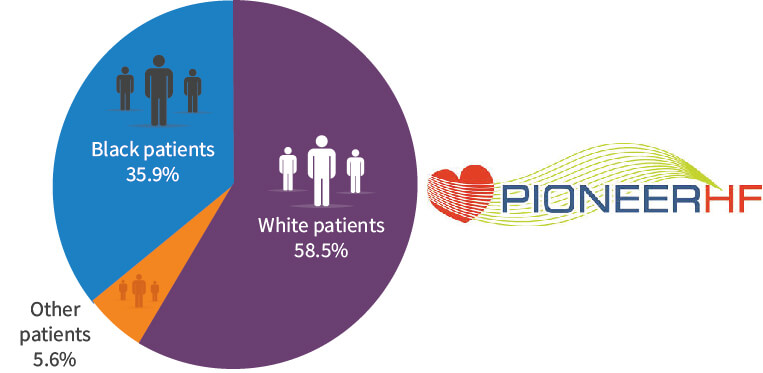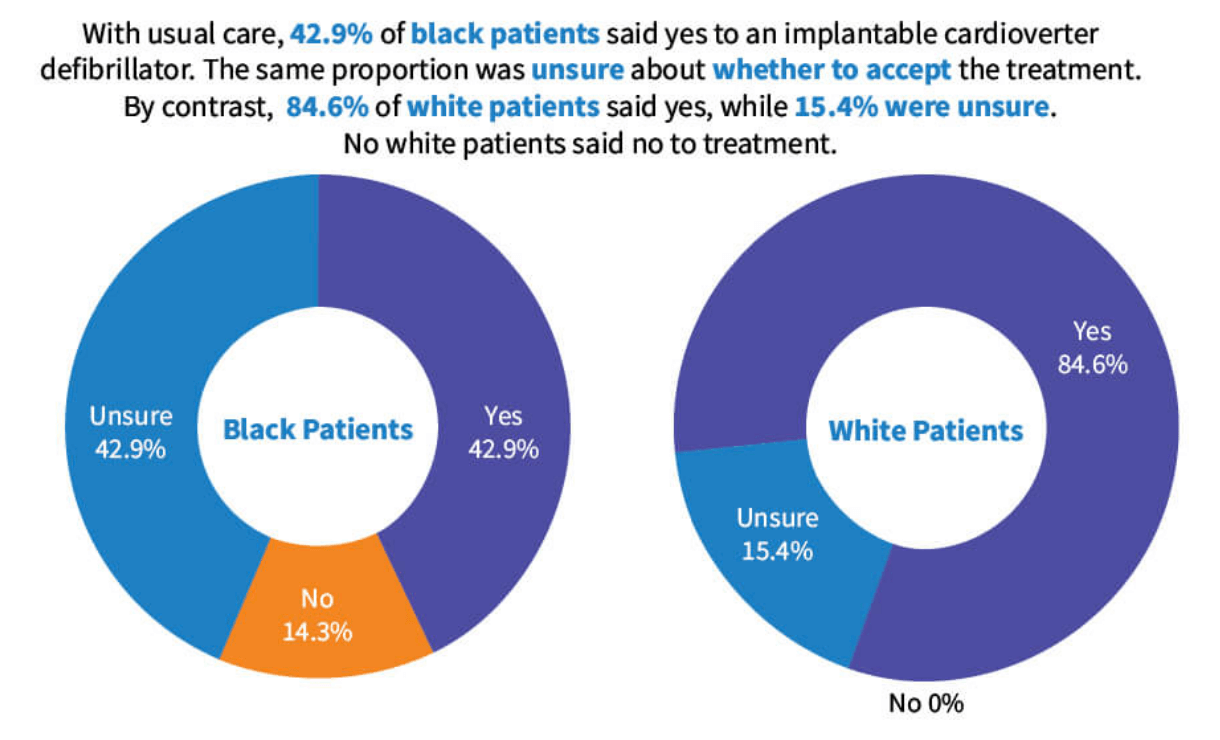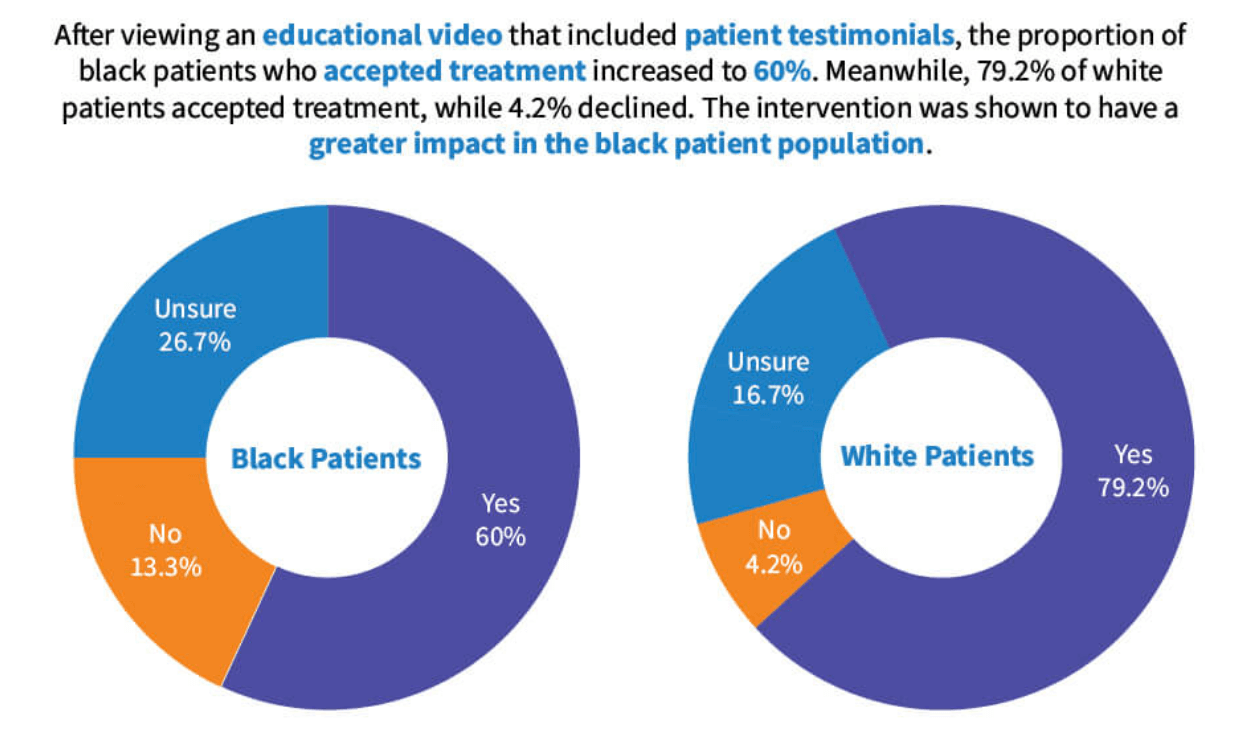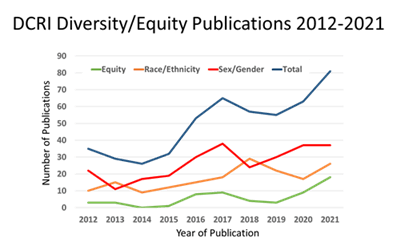Finding the Right Answers
We work to close the gap and alleviate disparities in a variety of ways. From focusing on representation in our provider base to ensure that patients feel comfortable with their providers to designing representative clinical trials, the DCRI ensures all patients have a voice in every phase of the health care journey.
Designing Representative Clinical Trials & Interventions
By enrolling participants in clinical trials that accurately reflect the full population and disease burden, the DCRI ensures that its research informs clinically valid guidelines for all patient groups. DCRI researchers also develop targeted interventions that address and improve outcomes across different populations.
PIONEER-HF

The PIONEER-HF study analyzed the safety of in-hospital initiation of sacubitril-valsartan for heart failure with reduced ejection fraction. Led by the DCRI’s Adam DeVore, the study population included 36 percent black patients. DeVore noted that diverse representation helped to provide "much-needed data on the use of this therapy in this population."
Stakeholder Engagement

The DCRI Stakeholder Engagement program brings patients and community members together with sponsors and investigators to co-design clinical research. Through the program's Research Together™ initiative, the DCRI developed guiding principles of participant engagement with the intention of developing relationships that are bidirectional – everyone learns from each other and everyone gains value.
VIVID Pilot Study
A pilot study conducted by the DCRI’s Kevin Thomas, MD, found that showing black patients an educational video about their treatment options increased the patients’ acceptance rate for treatment. A larger study to test the intervention is ongoing.


Sharing Knowledge That Leads to Equitable Care

In alignment with the DCRI's mission to improve health care around the world, the institute's thought leaders regularly share their insights through peer-reviewed publications and at major conferences.
In the last ten years, the DCRI has published over 80 articles on topics that highlight crucial findings related to equity, race/ethnicity, and sex/gender.
Most recently, the DCRI served as the data analytics center for the American Heart Association's (AHA) COVID registry's racial/ethnicity disparities project which shed light on the pandemic's impact on racial minorities. Findings were presented at the AHA 2020 Scientific Sessions.